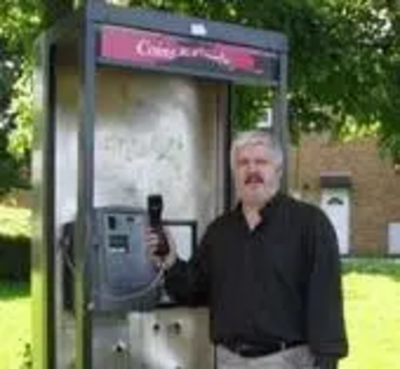Borough Council Set to Block Phone box Closures after Lib Dem Councillors' Objections

Bedford Borough Council is set to step in and prevent the loss of several payphones across the borough after Liberal Democrat Councillors raised objections to BT's proposed removals.
After a consultation on the planned removal of 28 payphones across Bedford Borough, the council has announced that it objects the proposed removal of payphones in the villages of Cotton End, Podington, Wymington, Stewartby, and on Carron Road, Brickhill and Kimbolton Road in Bedford. After another period of consultation, which ends on August 5th, the Council can exercise a veto over individual proposals. The decision to step in on these payphones follow objections raised by the Liberal Democrat Ward Councillors for these locations during a bizarre consultation period in which BT withheld crucial information and refused to take telephone calls on the matter.
Payphones in Melchbourne, Sharnbrook, Bromham, Turvey, Wilstead and on Ampthill Road, Bedford also look set to be saved by the council.
Commenting on the issue, Liberal Democrat Councillor for Brickhill Charles Royden said:
"I am delighted that the Council has backed the Ward Councillors who have fought to save payphones which should never have been proposed for removal in the first place. BT has taken an extremely obstructive approach on this issue so far. I hope it will now see sense and refrain from appealing against the council's final decision should it go ahead and veto the planned removals.'
"BT's efforts to remove payphones providing a vital service to communities are nothing less than an attempt to cut its own costs and make local residents pay the price. It is seeking to take phones away from rural areas with no alternative provision, and from urban areas where the payphones are used very frequently. Many of these phones are also needed for emergency use. It is essential that the council follows through on its declared intentions and blocks BT's flawed proposals."
BT announced its intention to remove the payphones in May, but provided no justification for the proposals. The criteria used to identify the phones set to be removed remained a mystery, and figures for the level of usage of the phones was not revealed until the day before the close of the first consultation period. In a further bizarre twist, Britain's largest telecommunications firm stated that it could not be contacted about the matter via the telephone.
The council has not raised an objection in the case of sixteen proposed removals, meaning that unless it changes its stance for these payphones they will be removed.
